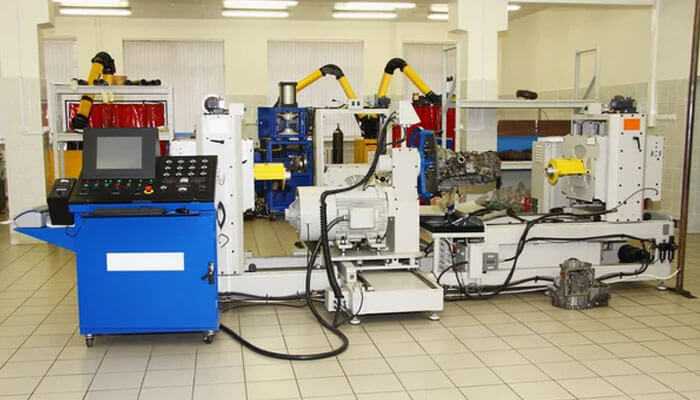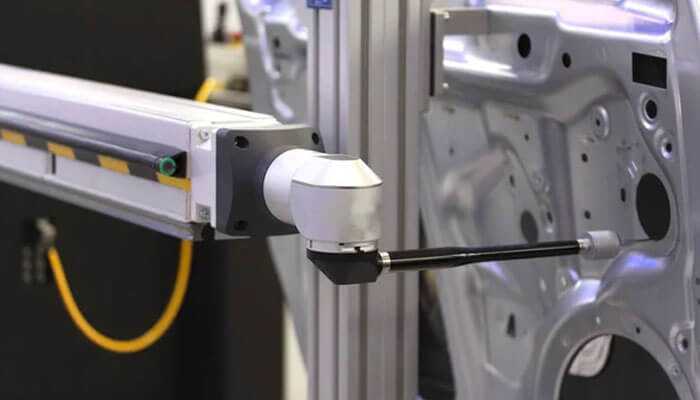Today, work environments are evolving. In the business industry, people need a workspace that enhances productivity and efficiency. They need a setup that is going to be the catalyst for an environment of growth and excellence. One of the best ways they can do this is to install a linear motion system. Linear motion systems continue to prove a useful innovation in offices for a few reasons.
They allow for convenience, improved office space, optimal performance, etc. Here we highlight all you need to know about linear motion systems, their benefits, and their faults. We also take you through the steps of installing one in your office, if you choose. Read on to digest the details.
What are the Linear Motion Systems?
These are technological innovations with the ability to produce automated linear movements. They have inbuilt electric linear actuators that utilize electrical energy and convert it to mechanical linear motion. When installed, it gives the system better control and precision when in movement along a straight line.
The Main Parts of a Linear Motion Systems
Actuator
Of course, what is a linear motion system without an actuator? This is the heart that makes the mechanism come alive. It is responsible for translating input electrical energy into linear motion.
There are different types of actuators such as electric linear actuators, hydraulic actuators, pneumatic actuators, and so on. However, the one relevant to us and upgrading office space is the electric linear actuator.
Controller
It is the think tank of the mechanism. The controller works like the brain does to the human body. That is, it regulates every motion depending on the instructions given by the user. Every motion system uses a unique controller. Some operate from the push of a button, a click on a device, or by voice command.
Feedback Mechanism
This is the setup responsible for interpreting signals sent from the actuator. It displays real-time data on the position of the actuator and how it moves. Hence, the user is able to monitor and ensure precise control.
Areas for Office Upgrade using Electric Linear Actuators
Since the advent of linear motion systems, modern offices boast of higher productivity and efficiency levels. Integrating into office furniture enhances the overall ergonomics of the workspace. It also elevates the aesthetics and improves overall user experience Here are the top areas you may install electric linear actuators to get the best out of your office.
Ergonomic Chairs
An ergonomic chair is vital for a healthy and painless office experience. The regular chair often has a straight and rigid backrest which is unsuitable for the curved shape of the back bones. The ergonomic chair, however, has a supportive design that allows the user to sit for long hours without witnessing back pain.
When you install an actuator, you give the chair advanced features. A few include adjustable seat heights, lumbar support features, and reclining mechanisms. All these bring maximum comfort to the user and support a healthy work experience.
Desks with Height Adjustments
Again, the concern for health has prompted the need for desk heights to become adjustable. A standing desk is a recommendation for people trying to correct a bad posture and reduce back aches. So if you decide to upgrade your office equipment, consider installing a linear motion actuator in the desks. This helps you switch to standing or sitting with little effort while at work. The result is improved well-being, enhanced comfort, and better productivity.
Motorized Workstations
These are work equipment that have automated parts for dynamic needs. Here, you configure your workstations with a linear actuator for specific functions. These could involve motorized monitor arms that permit users to change their positions for better viewing angles. You may also have a motorized office desk with automated drawers, cabinets, etc. The outcome is improved access, convenience, and reduced fatigue as these workstations lessen the physical workload on users.
How to Install Linear Motion Systems
Do you have an office that saps your energy and yields little results at the day’s end? Then it’s about time you considered linear motion systems. To get started, here are the steps to follow.
1. Assess the office
You need to evaluate the office space. Then you need to picture the perfect areas where the linear motion systems will bring the most value. An example is taking out the old static desk and replacing it with an adjustable desk and ergonomic chair.
2. Pick the relevant systems:
Choose a linear motion system that works seamlessly with the old furniture. Otherwise, the specifications must match the new furniture. Factors worth looking out for are the stroke length, actuator type, and load capacity.
3. Install and integrate:
This is where keen attention to detail becomes crucial. There are important details to know when installing or replacing an actuator. However, you may decide to contact a professional technician for complicated installations and to avoid errors.
4. Train users:
At this point, you need qualified operators to test-run the newly installed linear motion system. For long-term smooth operation, you also need to train employees to adapt to the upgraded office equipment. User manuals will be useful in providing important details about the latest features and other ways to preserve the lifespan of the linear motion system.
Signs of Faulty Linear Motion Systems
Going forward, you may experience mechanical and electrical faults in your linear actuator systems. Here are the top signs to know you need a replacement actuator in your office equipment.
1. Shaky movements. Precision and smooth operation are the top features of an electric actuator. So if that motorized workstation is having crooked movements, the actuators have become faulty.
2. Motion becomes noisy. Actuators are noiseless in operation. But if your office equipment begins to squeak and grind while you operate it, it is time for a change. The best bets are that the bearings have become loose and the gear has worn out.
3. Reduced efficiency. There is also a potential fault whenever you notice regular sluggish motions or unresponsiveness in your automated office equipment. Typical linear motion systems operate with speed and precision, and anything less demands a maintenance check.
Conclusion
The beauty of an office lies in productivity and efficiency. Linear motion systems are a guarantee for improved working experiences. This is because they promote convenience and accessibility, improve health through proper sitting postures, reduce fatigue, etc. Consider installing linear motion systems in your office chair or work desk and reap the maximum benefits today.



